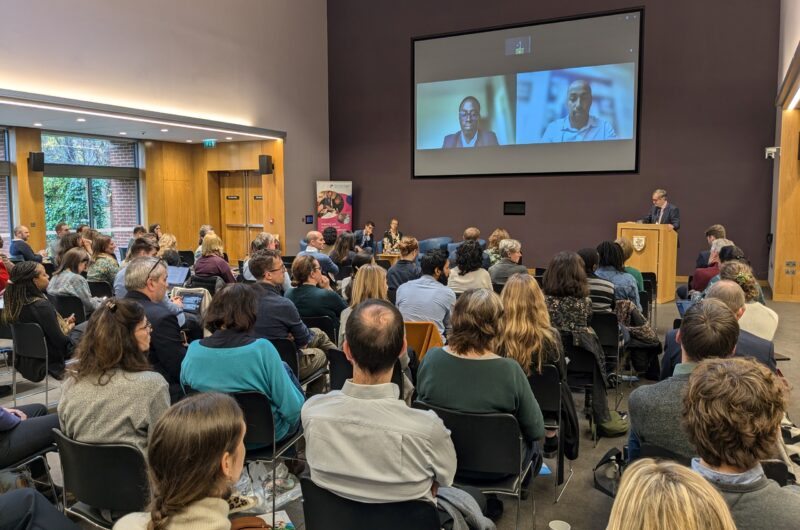The contribution of Cambridge and the East of England to improving global health was in the spotlight last week at the 4th East of England Global Health Conference.
More than150 delegates joined in person at Robinson College, University of Cambridge, and via Zoom from across the UK and as far afield as Rwanda and Ethiopia for the bi-annual event organised by Cambridge Global Health Partnerships.
This year’s conference focused on building healthcare systems in the face of the disproportionate impacts of climate change and the social and commercial determinants of health. Speakers included local practitioners and researchers from Cambridge University Hospitals NHS Foundation Trust (CUH), and the University of Cambridge, alongside experts from global health NGOs, other universities in the UK and overseas, and the wider NHS.
Roland Sinker, CUH Chief Executive provided the welcoming message, emphasizing the importance of engaging with global health challenges to the East of England healthcare system and wider NHS. Opening keynote, Pippa Heylings MP, then set the scene with a timely and thought-provoking presentation about her experience working internationally to tackle climate change, to now working as a parliamentarian to pressure the Government on the twin crises of health and climate.
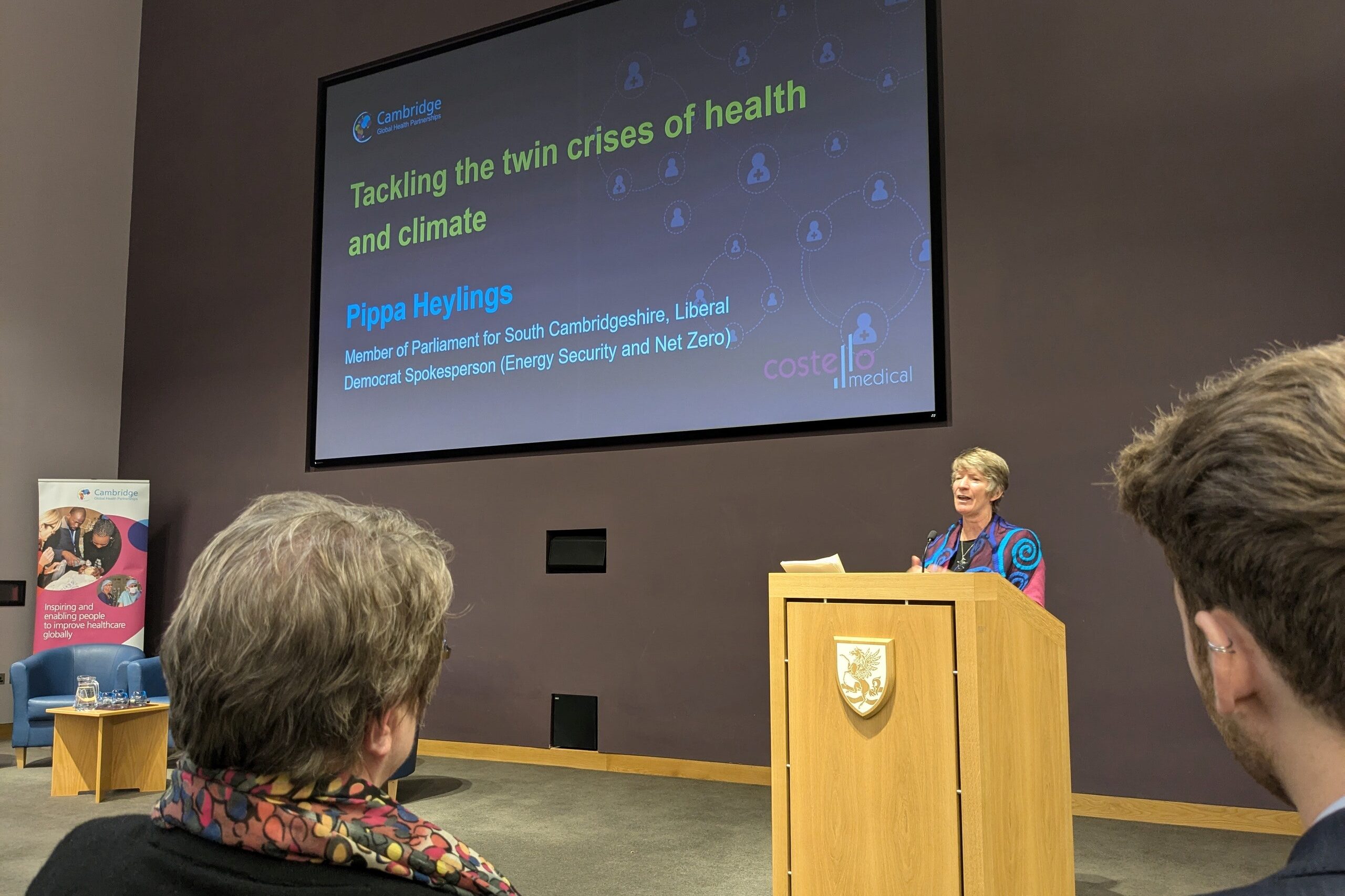
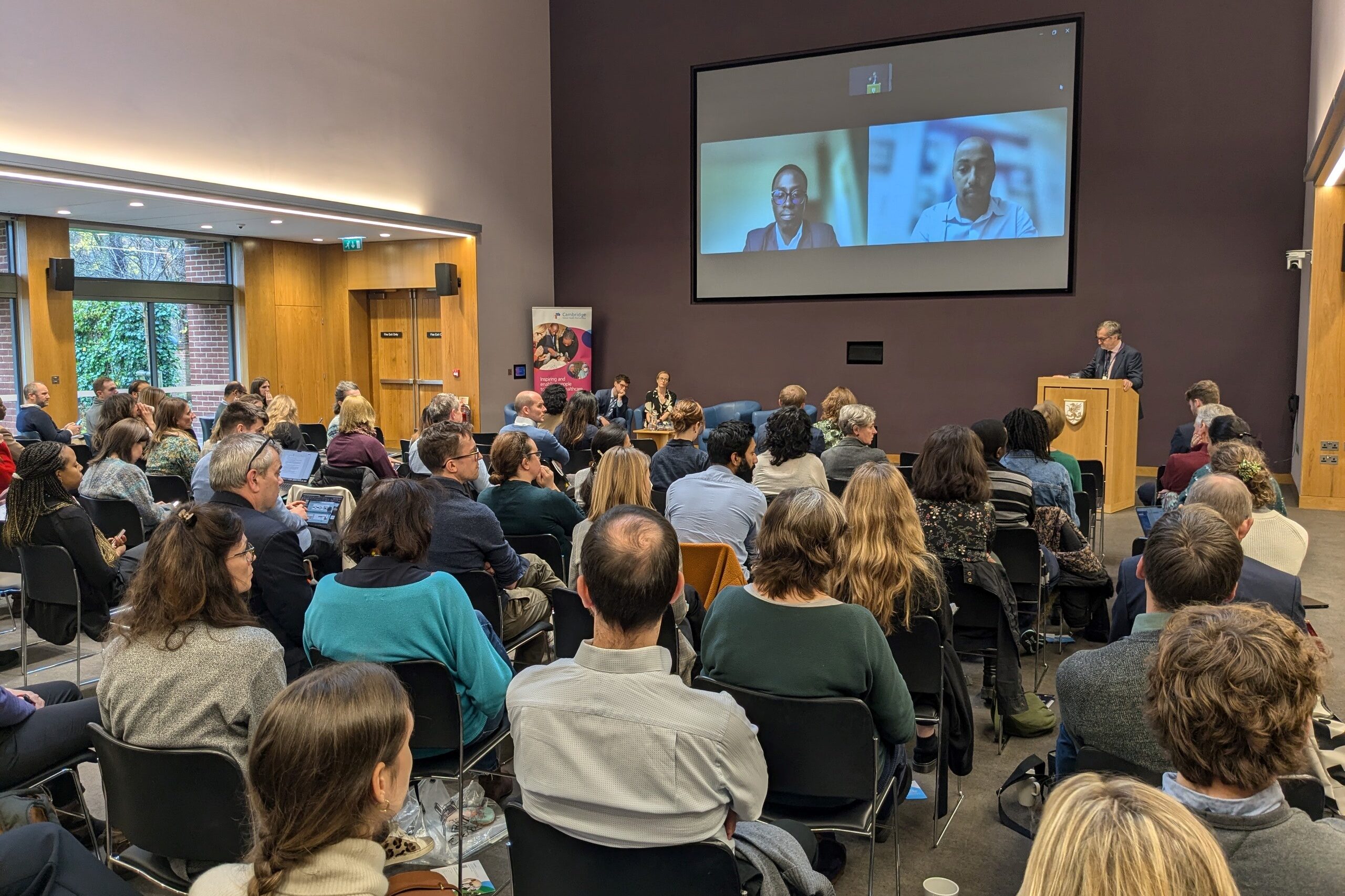
Three conference sessions followed, focused on Global Health Research, Education and Clinical Practice. Highlights included insights from Lifebox – a global non-profit that is making surgery and anaesthesia safer worldwide, AMREF – an Africa-focused health NGO working in 35 countries, the London School of Hygiene and Tropical Medicine, the University of Derby, and Global Health Partnerships (formerly THET), as well as CGHP members, partners and collaborators based in the East of England and globally.
The speakers presented forward-thinking approaches to global health challenges ranging from antimicrobial resistance to traumatic injury, and the importance of innovation, service design and access in healthcare training and delivery. The rich panel discussions were an opportunity to unpick the role of global health knowledge in medical education, the importance of community engagement in building meaningful health partnerships, the vital role that digital training and support plays, and how the NHS can learn both from its diaspora staff as well as from low- and middle- income- countries.
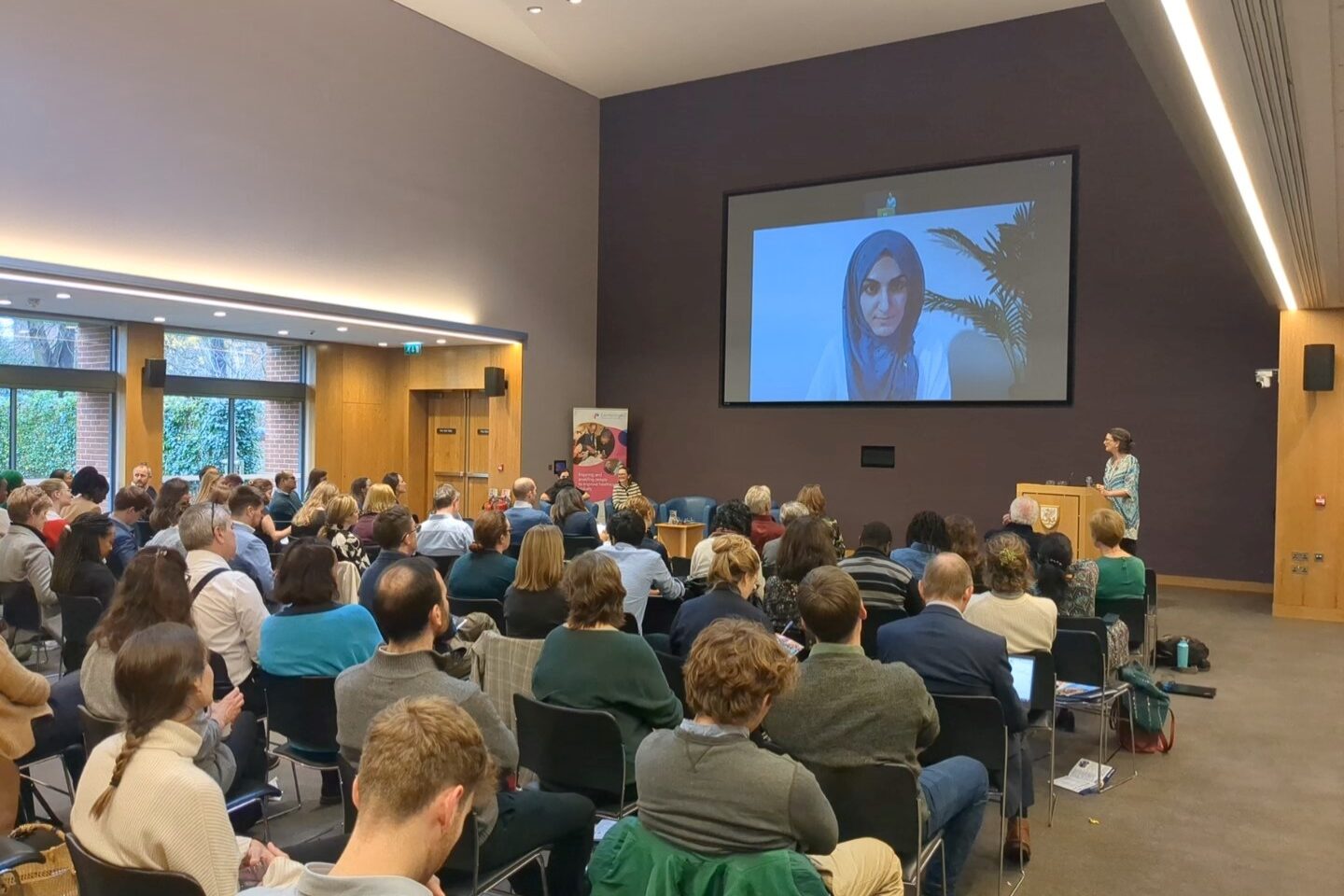
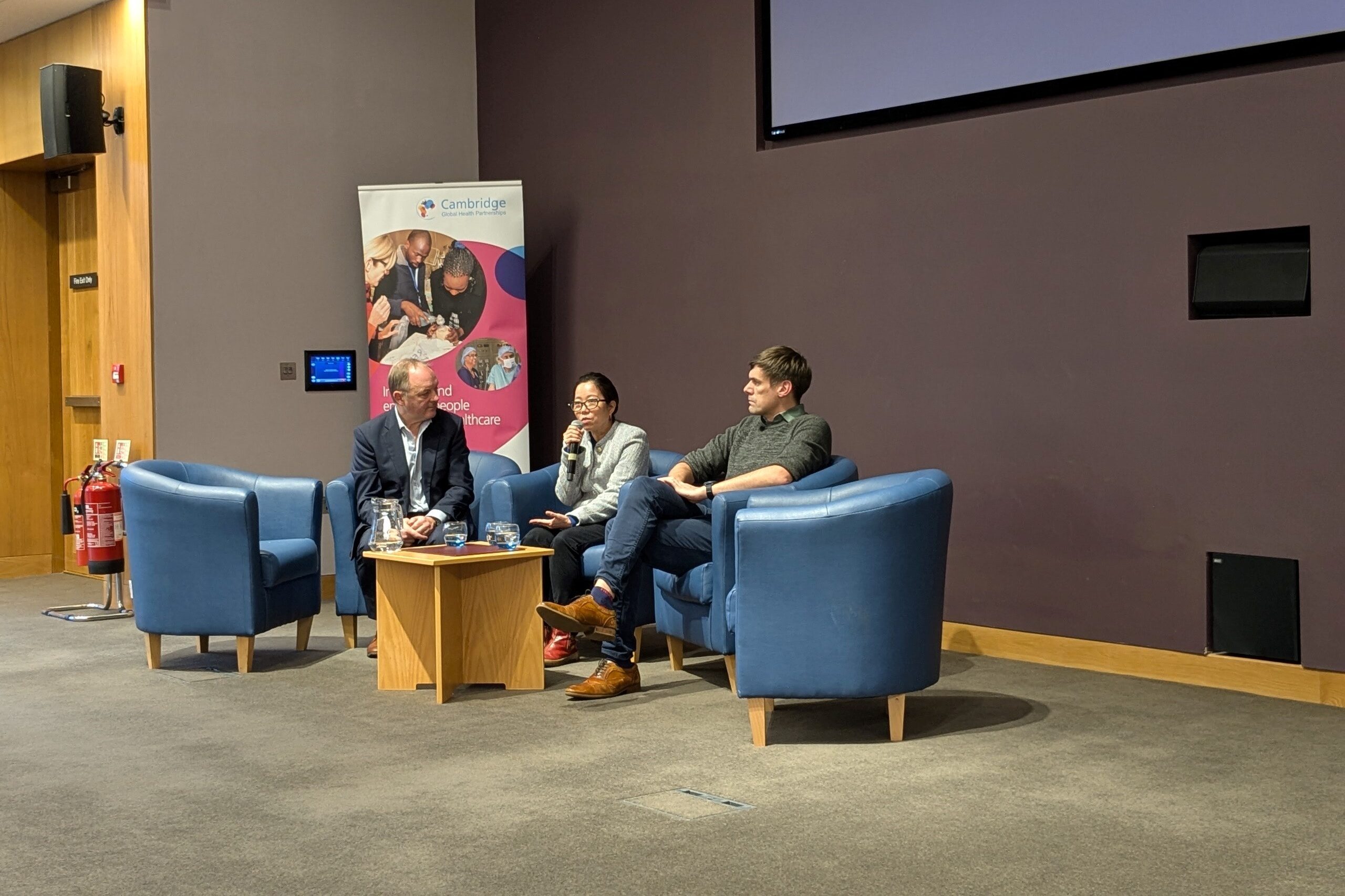
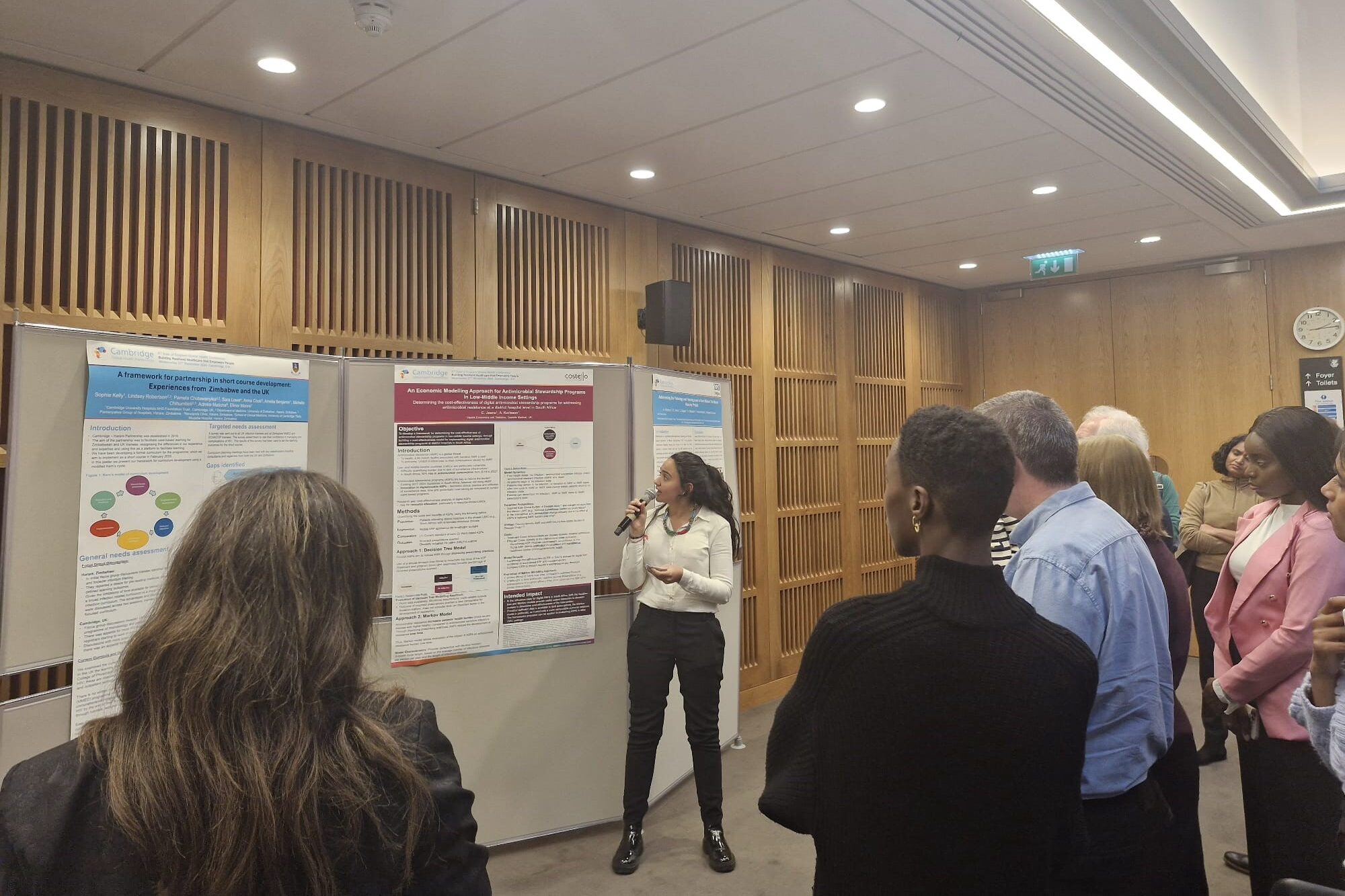
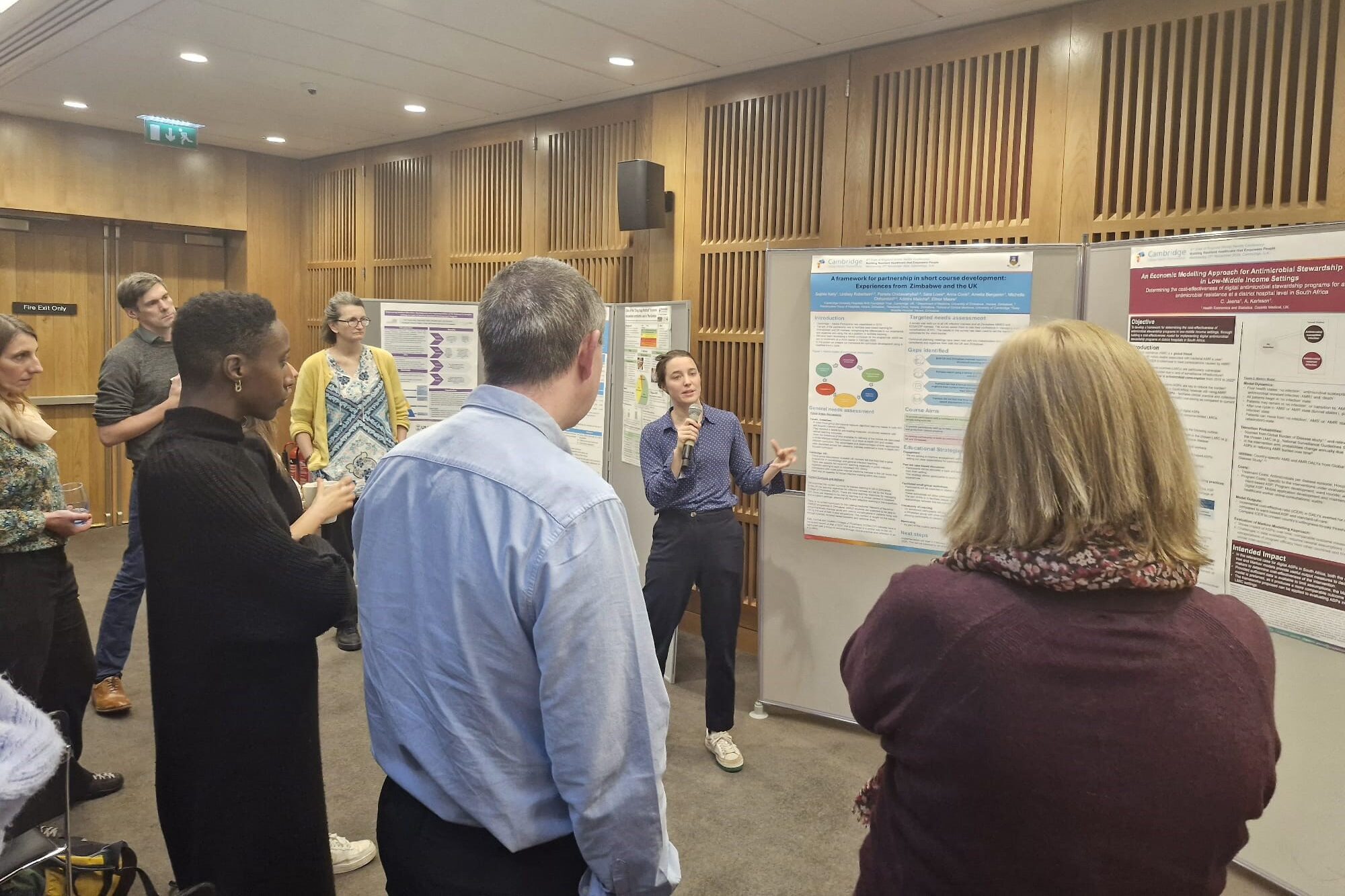
Professor Joe Jarvis from the London School of Hygiene and Tropical Medicine and the Botswana Harvard AIDS Institute Partnership gave the closing keynote. His talk brought to life the importance of translating clinical research into practice, and how the work he’s led has helped to transform the management of HIV-associated cryptococcal meningitis – a disease responsible for approximately 20% of all HIV-related deaths globally.
Running alongside the main conference was a poster competition entered by almost 40 individuals, with the winners and runners up taking to the floor to present their work during the lunchbreak.
The posters, like the presentations, were a reminder of the importance of sustainability, scalability and suitability in healthcare training and delivery, and how conflict and climate change are inextricably linked to health – both locally and globally. The conference’s message was clear: improving healthcare globally is a top priority that affects us all.
Look out for recordings of the conference presentations and keynotes on the CGHP YouTube channel.
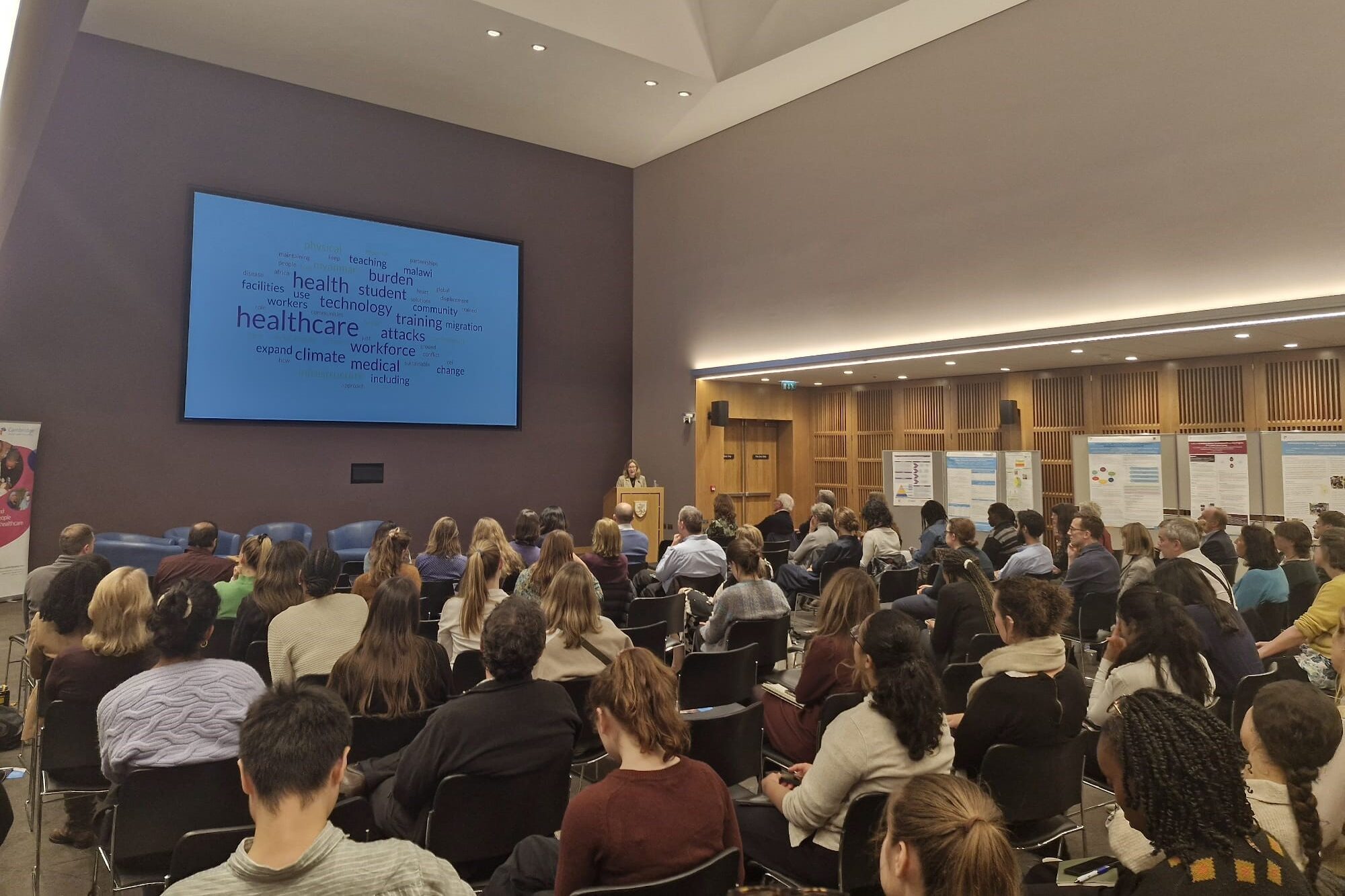
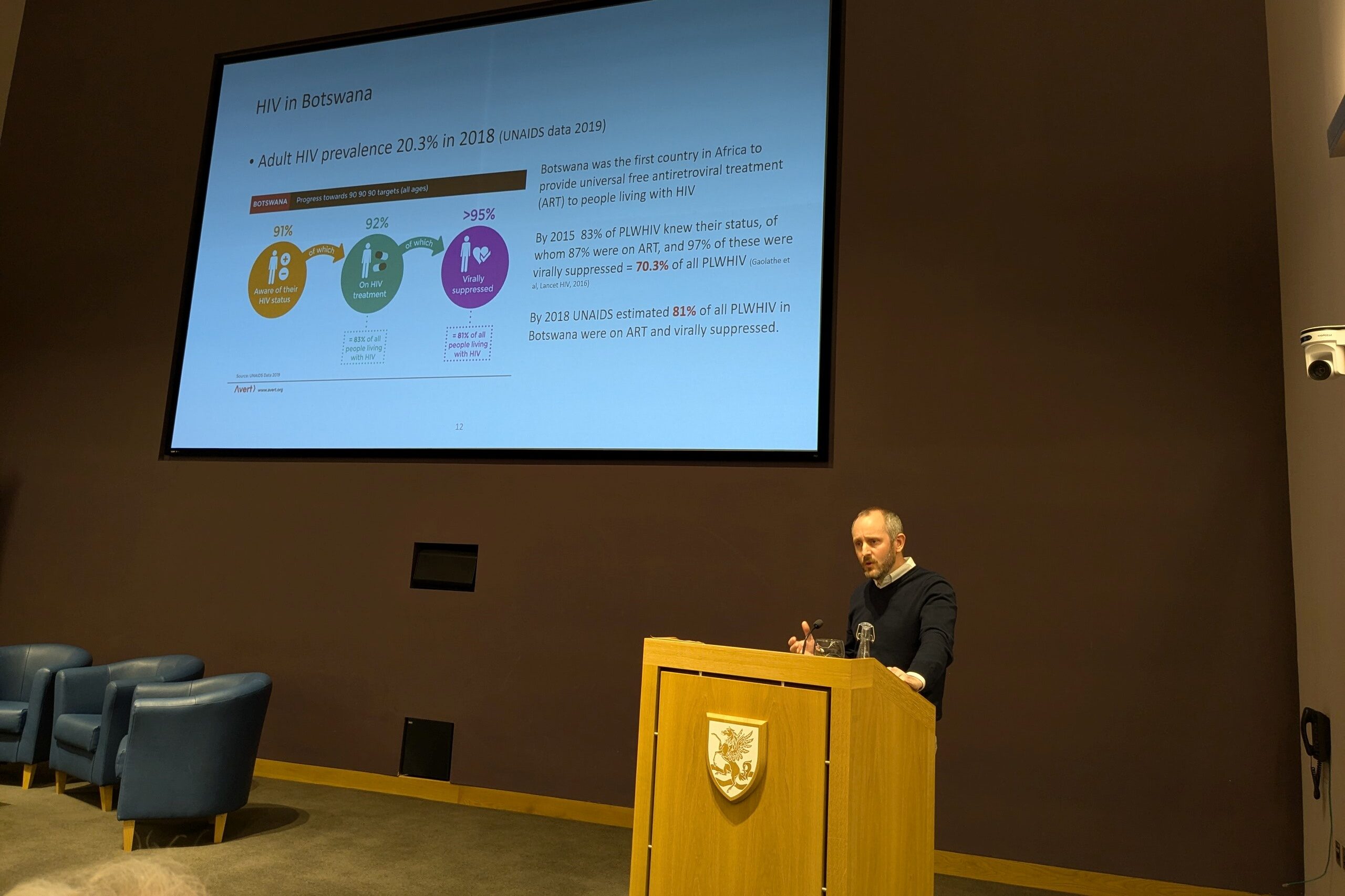
CGHP is very grateful to our conference sponsor, Costello Medical, a global healthcare consultancy and certified B Corp that is committed to ethical and sustainable business practices.
Find out how you can contribute to the global health partnerships that CGHP supports or what our members, partners and supporters are up to in the blogs section.
Return to news

